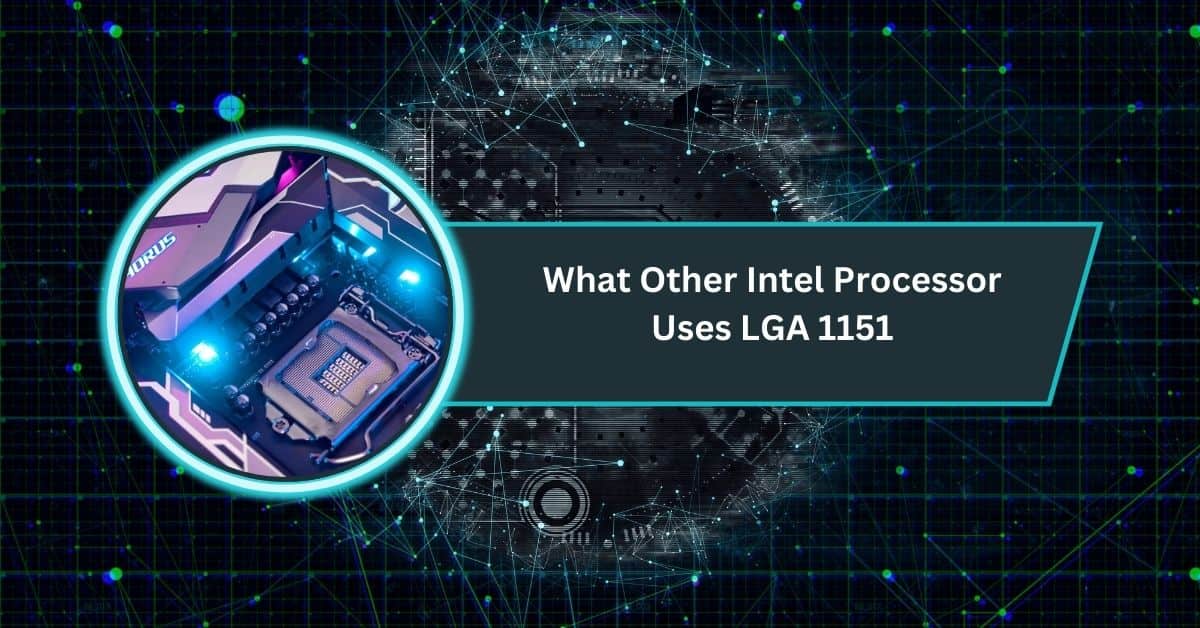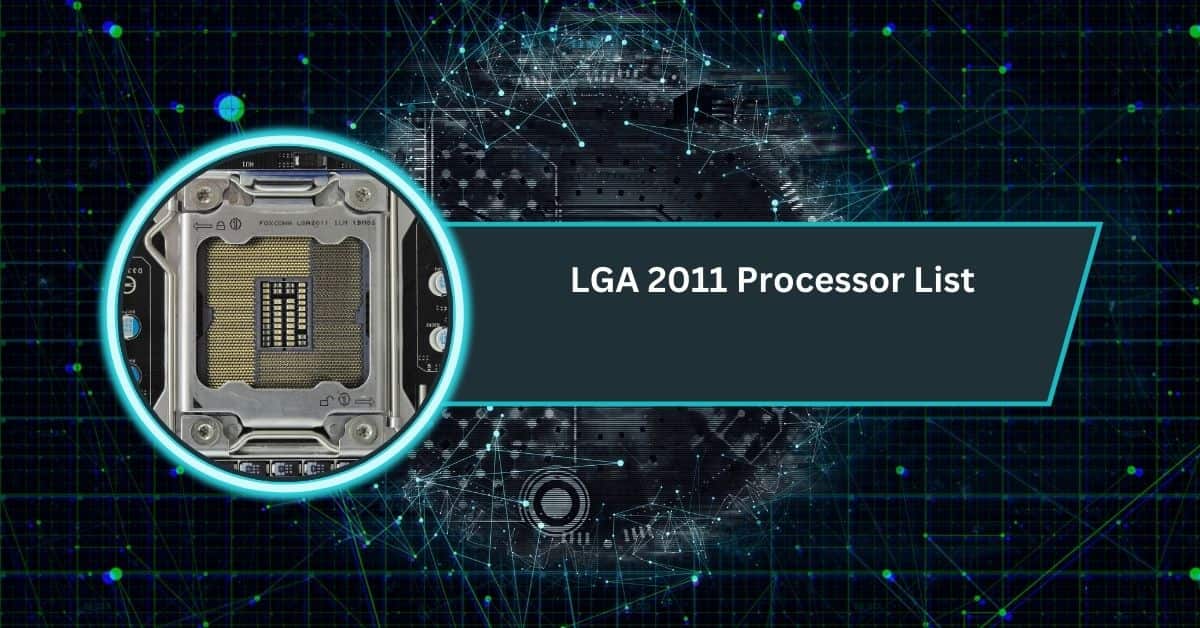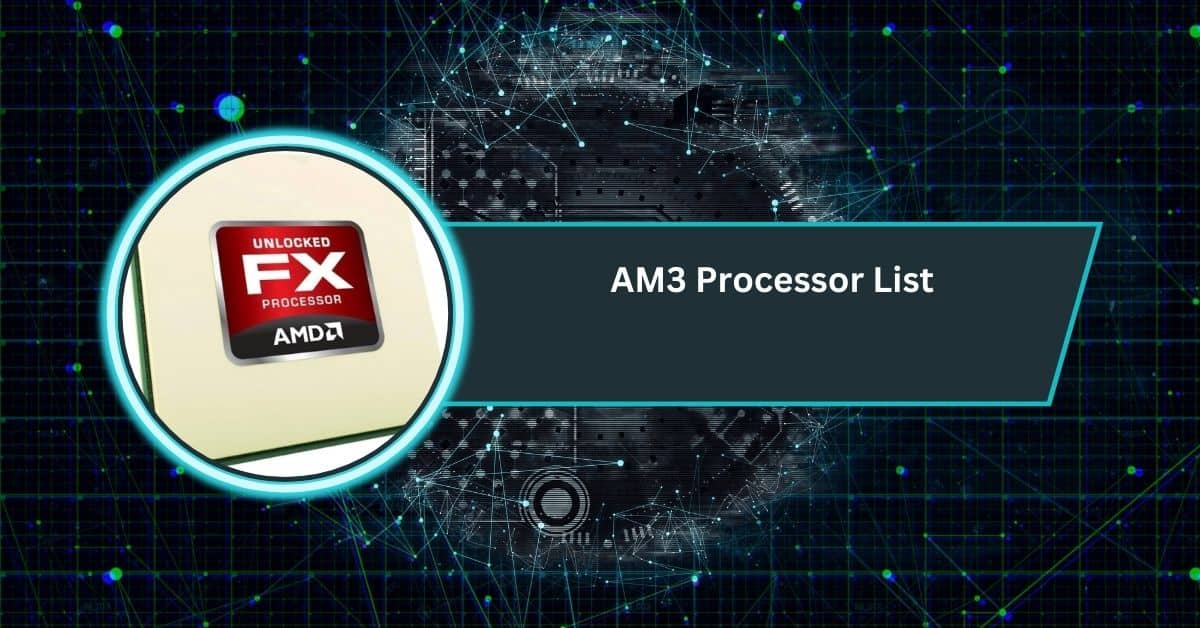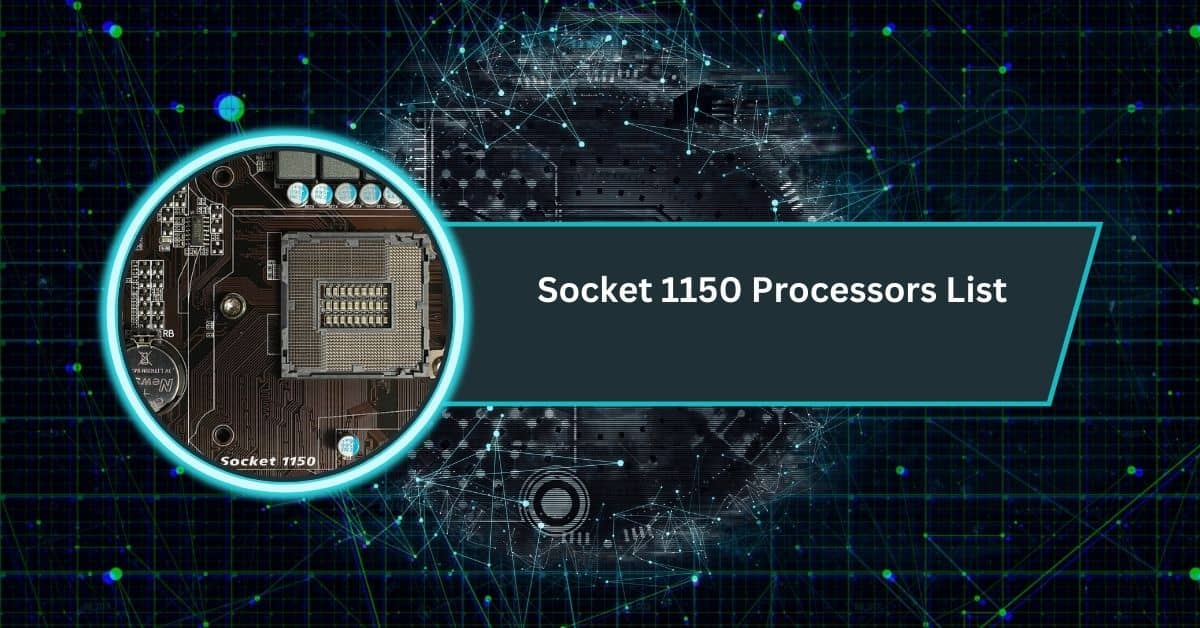When building or upgrading a PC, choosing the right processor is crucial, and understanding the compatibility with your motherboard is key.
The LGA 1151 socket supports Intel processors like Skylake (6th gen) and Kaby Lake (7th gen), including models like the Core i7-7700K. It is compatible with a variety of Intel desktop CPUs.
In this article, we’ll explore the different Intel processors that use the LGA 1151 socket, their features, and how to choose the best one for your setup.
Understanding LGA 1151 Socket
1. What is LGA 1151?
LGA 1151 stands for Land Grid Array 1151, which means it has 1,151 contact pins on the motherboard to connect with the CPU.
Intel created this socket to support multiple generations of processors. It replaced the older LGA 1150 socket and was later replaced by the LGA 1200.
Some LGA 1151 motherboards support only 6th and 7th Gen CPUs, while others support 8th and 9th Gen CPUs. Make sure to check your motherboard chipset before choosing a processor.
2. Key Differences Between LGA 1151 Versions

- Two Versions Exist – LGA 1151 has two different versions that do not work with each other.
- 6th & 7th Gen CPUs – The older version supports Skylake (6th Gen) and Kaby Lake (7th Gen) processors.
- 8th & 9th Gen CPUs – The newer version works with Coffee Lake (8th Gen) and Coffee Lake Refresh (9th Gen) processors.
- Different Motherboards – 100- and 200-series chipsets support older CPUs, while 300-series chipsets support newer CPUs.
- Not Cross-Compatible – You cannot use an 8th/9th Gen CPU on a 100/200-series motherboard or a 6th/7th Gen CPU on a 300-series motherboard.
Intel Processors Compatible with LGA 1151
1. 6th Generation (Skylake) Processors
- Released in 2015
- Works with 100-series motherboards
- Core i3-6100, i3-6300, i3-6320
- Core i5-6400, i5-6500, i5-6600, i5-6600K
- Core i7-6700, i7-6700K
- Pentium G4400, G4500, G4520
- Celeron G3900, G3920
2. 7th Generation (Kaby Lake) Processors
- Released in 2017
- Works with 100- and 200-series motherboards
- Core i3-7100, i3-7300, i3-7320
- Core i5-7400, i5-7500, i5-7600, i5-7600K
- Core i7-7700, i7-7700K
- Pentium G4560, G4600, G4620
- Celeron G3930, G3950
3. 8th Generation (Coffee Lake) Processors
- Released in 2018
- Works with 300-series motherboards
- Core i3-8100, i3-8300
- Core i5-8400, i5-8600K
- Core i7-8700, i7-8700K
- Core i9-9900K
4. 9th Generation (Coffee Lake Refresh) Processors
- Released in 2019
- Works with 300-series motherboards
- Core i3-9100, i3-9300
- Core i5-9400, i5-9600K
- Core i7-9700, i7-9700K
- Core i9-9900, i9-9900K, i9-9900KS
Should You Upgrade from LGA 1151?
Upgrading from LGA 1151 depends on your needs. If your PC feels slow when gaming or working, upgrading can help.
Newer sockets like LGA 1200 and LGA 1700 support faster processors, DDR5 RAM, and PCIe 4.0, which improve performance.
However, it can still handle many tasks with a good LGA 1151 CPU, like the i7-9700K or i9-9900K. Upgrading is best for high-end gaming and future-proofing, but LGA 1151 still works fine for basic use.
Intel Xeon Processors on LGA 1151

Intel Xeon processors are designed for heavy workloads and are often used on workstations and servers. Some Xeon models are compatible with the LGA 1151 socket, offering high multi-core performance, which is great for tasks like video editing, 3D rendering, and scientific computing.
Xeon processors are built for reliability and can handle longer operating hours than typical consumer chips. While powerful, they are generally not used in everyday home computers.
LGA 1151 and Backward Compatibility
One of the great features of LGA 1151 is its backward compatibility. You can sometimes use newer processors in older LGA 1151 motherboards if they’re from the same generation.
However, checking your motherboard’s chipset and BIOS version is important, as some older boards may not support newer processors.
If upgrading, ensure the motherboard can handle the performance upgrades to ensure smooth operation.
Performance Improvements with LGA 1151 Processors
LGA 1151 processors offer great performance improvements, especially with later generations. The jump from the 6th-gen Skylake to the 8th-gen Coffee Lake brought better efficiency, higher clock speeds, and more cores.
This translates to smoother multitasking, faster speeds for gaming, and improved performance for applications like video editing.
As the generations progress, LGA 1151 processors continue to deliver more power without consuming much more energy, making them a solid choice for users seeking reliable, high-speed performance.
Choosing the Right Intel Processor for Your Needs
- Purpose of Use: Decide if you need the processor for gaming, work, or general use. Gamers may need more cores and higher speeds, while general users can go for budget-friendly models.
- Budget: Consider how much you’re willing to spend. Intel’s i3, i5, and i7 processors vary widely in price.
- Core Count: Opt for a processor with more cores (i5 or i7) for multitasking or heavy applications.
- Clock Speed: Higher clock speeds mean faster performance, especially for gaming and high-demand tasks.
- Compatibility: Ensure your motherboard supports the processor generation you choose.
Comparing LGA 1151 Processors with Other Intel Sockets
LGA 1151 is popular, but there are other Intel sockets to consider. For example, LGA 1200 and LGA 1700 are newer sockets that offer better performance and support for the latest processors.
LGA 1200 works with 10th and 11th gen Intel chips, while LGA 1700 is designed for 12th and 13th gen processors.
Compared to LGA 1151, these newer sockets offer improved speeds and features, but LGA 1151 is still a solid choice for budget builds or older systems.
Common Myths About LGA 1151 Processors
- LGA 1151 is outdated: While newer sockets exist, LGA 1151 still provides great performance for many users and is not outdated for everyday tasks.
- LGA 1151 processors are not upgradeable: You can upgrade to more powerful processors within the same LGA 1151 generation, but check motherboard compatibility first.
- Only high-end processors work well with LGA 1151: Budget-friendly i3, i5, and i7 processors for LGA 1151 still offer good performance.
- All LGA 1151 processors are the same: Different generations (Skylake, Kaby Lake, Coffee Lake) offer varying performance, so not all LGA 1151 processors are equal.
- LGA 1151 is only for gaming: LGA 1151 processors are suitable for various tasks, including office work, streaming, and content creation.
Troubleshooting Common LGA 1151 Issues
- Check CPU Seating: Ensure the processor is properly seated in the socket. If it’s not correctly installed, your PC may not boot.
- Update BIOS: Sometimes, the motherboard needs a BIOS update to support newer processors. Check the manufacturer’s website for updates.
- Check Power Supply: Ensure your supply delivers enough power for the CPU and other components.
- Test with Minimal Setup: Remove unnecessary components (like extra RAM or expansion cards) and see if the system boots with the basics connected.
- Look for Error Codes: Some motherboards have diagnostic LEDs or codes that can help identify issues with the CPU or other components.
What other Intel Processor Uses LGA 1151 Motherboard

Besides Intel Core i3, i5, and i7 processors, LGA 1151 motherboards also support certain Intel Pentium, Celeron, and Xeon processors. These offer a range of performance, from basic computing to heavy workloads for workstations and servers.
LGA 1151 CPU List
LGA 1151 supports a variety of Intel processors, including Core i3, i5, i7 (6th-9th generation), Pentium, Celeron, and some Xeon models. These processors offer various performance options for gaming, productivity, and budget-friendly builds.
LGA 1151 Processor
An LGA 1151 processor is designed to fit into the LGA 1151 socket on a motherboard. It features 1151 pins that connect to the motherboard, providing efficient power and data transfer. This socket supports Intel’s 6th through 9th generation processors.
LGA 1151 Best CPU
The best LGA 1151 CPU depends on your needs. The Intel Core i7-9700K or i9-9900K are great choices for gaming. For general use, the i5-8600K or i5-9600K provides excellent value. Always check for motherboard compatibility before upgrading.
Does Haswell Use LGA 1151
No, Haswell processors use the LGA 1150 socket, not LGA 1151. Haswell is part of Intel’s 4th generation Core processors, while LGA 1151 is used by the 6th to 9th generation processors (Skylake, Kaby Lake, Coffee Lake).
FAQs
1. What other Intel processors use the socket LGA 1151?
LGA 1151 supports Intel Core i3, i5, i7, Pentium, Celeron, and Xeon processors from the 6th to 9th generations, offering various performance levels.
2. What processors are compatible with LGA 1151?
LGA 1151 is compatible with Intel Core i3, i5, i7, Pentium, Celeron, and Xeon processors from the 6th, 7th, 8th, and 9th generations.
3. What processors socket is LGA 1151?
LGA 1151 is a socket used by Intel processors, specifically for the 6th to 9th generation Core, Pentium, Celeron, and some Xeon CPUs.
4. What CPUs do LGA 1151 motherboards support?
LGA 1151 motherboards support Intel Core i3, i5, i7, Pentium, Celeron, and Xeon processors from the 6th to 9th generations, offering various features.
5. What socket 1151 processors have the highest cores?
The Intel Core i9-9900K, using LGA 1151, has the highest core count with 8 cores and 16 threads, offering top performance for demanding tasks.
6. What CPUs are compatible and fit in the Socket LGA 1151?
LGA 1151 fits Intel 6th to 9th generation processors, including i3, i5, i7, i9, Pentium, Celeron, and some Xeon CPUs.
Conclusion
In conclusion, the LGA 1151 socket is compatible with a wide range of Intel processors from the 6th to 9th generation, including Core i3, i5, i7, Pentium, Celeron, and some Xeon models. Whether upgrading for gaming, productivity, or general use, plenty of options exist. However, checking motherboard compatibility and processor generation is essential before making your choice. While newer sockets offer better performance, LGA 1151 remains a reliable and cost-effective solution for many users.















